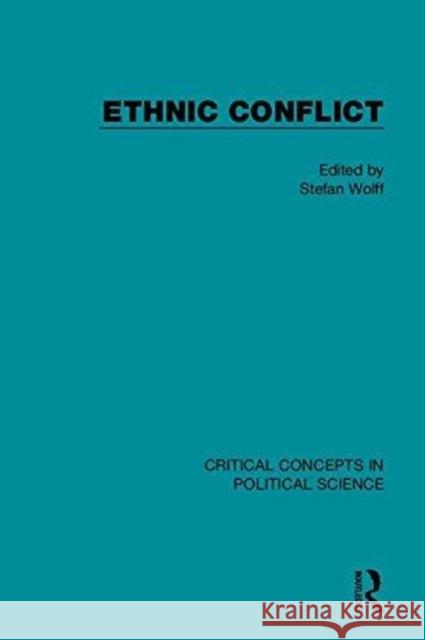Ethnic Conflict » książka
Ethnic Conflict
ISBN-13: 9781138931855 / Angielski / Twarda / 2018 / 1630 str.
The study of ethnic conflict saw its heyday in the aftermath of the Cold War with a proliferation of theories about its causes and management. But its origins as a subject of academic inquiry not only predate the end of the Cold War but also its inception, with some of the earliest works of significance emerging as far back as the end of the First World War. Since then, the field has become both multidisciplinary (in the sense of different disciplinary perspectives engaging individually with ethnic conflict as an object of study) and interdisciplinary (with novel insights emerging from the combination of various disciplinary approaches). In a similar vein, the range of methods applied to the study of ethnic conflict ranges from the purely theoretical, to the single ethnographic case study, to large statistical analyses, and various combinations thereof. While the study of ethnic conflict may have lost some of its early dynamism, as an empirical manifestation of political crisis it has, if anything, gained in importance and, alas, is unlikely to decline in relevance. Now, this new four-volume collection from Routledge answers the growing need for an authoritative reference work to make sense of the different approaches to the study of ethnic conflict, and to offer a comprehensive and representative overview, combining foundational texts with the very best cutting-edge contemporary scholarship. Ethnic Conflict is fully indexed and includes a comprehensive introduction, newly written by the editor, which places the collected material in its historical and intellectual context. It is an essential reference work and is destined to be valued by scholars and students--as well as policy-makers and practitioners--as a vital one-stop research and pedagogic resource.











